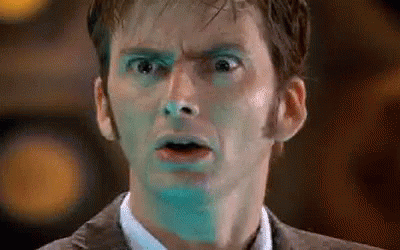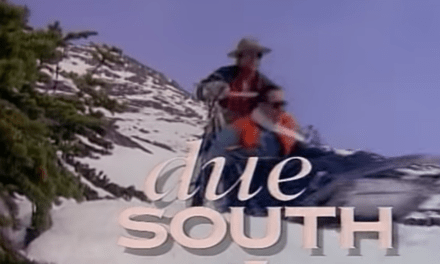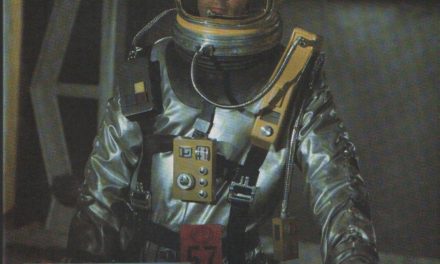What a couple of days it’s been for a certain type of television-obsessed millennial. Firstly, everyone’s favourite so-bad-it’s-good school drama Waterloo Road is returning, after seven years away, two definitely-demolished locations and a fanbase that definitely aren’t still teenagers. THIS IS NOT A DRILL. Then, as if timed to top this sheer insanity, Russell T Davies is running Doctor Who again! Russell T Davies, who brought the show back with a winning formula in 2005 and then repeated the same formula until it got very stale and he left, well over a decade ago? Yes, that Russell T Davies!
I don’t know what time track we’ve jumped to get here, but these things are actually happening. So practice backcombing and charge up your BlackBerrys, because it’s clearly about 2008 again. Join me as I try to figure out what the hell is going on.
There are some clear narratives around Waterloo Road‘s revival. Firstly, this whole pandemic thing, which hit a few months after the series was added to iPlayer, and – so we’re told – found a new generation of fans who had nothing better to do than get drawn into its inexplicably obsessive teen romance/love triangle/Blairite education reform/socioeconomic depravity/culpable homicide/flamin’ press sagas. And that’s just the first series. Maybe they vaguely recall it stumbling to its end in Scotland for some reason when they were in primary school. (Oh god, I was working in a primary school then.) Secondly, the big decentralisation. While the strategy to establish year-round drama outside London has spelled the end for Holby City, Manchester calls (again) for Waterloo Road. It sort of makes sense; even when the stories were at their shoddiest, the show was always a great training ground for regional production staff and young actors-who-can-pass-as-teenagers needing a first step between soap and ‘proper’ drama (hello Jenna Coleman).
But even so, I don’t think anyone seriously joined the dots and thought the show was actually going to come back. Whispered suggestions of crowdfunded YouTube shorts seemed wildly optimistic a week ago. Even the most nostalgic viewer has to admit Waterloo Road had its moment – and carried on for about six years after it. There’s also basically no chance of any continuity with the series as it was, unless the new premise is based around one returning character (as tempting as it is to see the likes of Rachel Mason, this would land the show in trouble when they inevitably quit after a year). Neil Morrissey certainly won’t be appearing. So the Waterloo Road brand is being used as just that: a vehicle to fulfill the BBC’s current directives (just as when it upped sticks to Scotland back in the day), and to, reportedly, explore the post-COVID education landscape. That’ll be either brilliant or terrible, then. Just like sitting down to an episode used to feel!
Meanwhile, Doctor Who‘s time-jump is even more bewildering. Again: it’s RUSSELL T DAVIES. No one saw this coming. RTD, as I assume we’re going to start calling him again now, has given every impression of having thoroughly moved on from Doctor Who for the last decade, carving out a wonderful niche in LGBTQI+ drama with some stunning work in Cucumber/Banana, A Very English Scandal, Years and Years and It’s a Sin. He’s a writer who has the clout to make the shows he wants to make, in the way he wants to make them. Put bluntly, his post-Who work is far superior to what he was able to deliver under the mass-appeal pressures of the David Tennant era. So why, by the moons of Raxacoricofallapatorius, would he want to go back?
The answer may lie buried behind the headline of this news: not only is RTD returning, but the production of Doctor Who is being taken over by Bad Wolf from BBC Wales. This is a big development in itself: for the first time (ignoring the 1996 movie), the BBC’s flagship family drama is being made by an independent production company, not in-house. And this means more returnees: Bad Wolf is literally named after a 2005 Doctor Who story arc, and is led by Julie Gardner, its executive producer at the time, and Jane Tranter, who commissioned the revival for the BBC. Off the back of His Dark Materials, Bad Wolf is returning home. (Here’s hoping they start hiding the phrase in episodes again.) Now it’s possible that RTD was the prize for BBC Studios, and he pushed to work with his old crew, but I’d wager it’s the other way round: the move to an indie is another strategic shift, and Bad Wolf pursuaded Davies to return.
Perhaps, now working for an indie, our Russell has been tempted by a greater level of creative freedom than he experienced in his first Who era. I certainly hope we’ve all moved on from the ‘gay agenda’ discourse that surrounded his 2000s episodes. Representing diverse sexuality and gender identities in a family drama is, I optimistically state, in itself not as controversial as it was fifteen years ago; even if the Daily Mail commenters still show up in force at every boundary being pushed, they are still being pushed. So the at times tokenistic feel of RTD’s diversity in Doctor Who should certainly be a thing of the past. And I would hope that narratively, too, the boldness of his more recent television works will be able to transfer across to Who. This year’s Doctor Who series, the last under current showrunner Chris Chibnall, is a full-on six-episode serial; while this may have been forced by the pandemic, let’s hope that RTD can take on that creative energy and run with it. I don’t want a return to the days where he couldn’t make the Tenth Doctor interesting until his penultimate episode, and I’m sure he doesn’t either. He’s diving in with the 60th anniversary and a brand new Doctor, with a lot more showrunning experience under his belt than before: what could be more exciting? It’s just a shame that Christopher Eccleston definitely won’t be appearing.
Indie production shenanigans also seem to have influenced Waterloo Road‘s surprise comeback. No one ever really paid attention to who was in charge of this show, but IMDB tells me that Cameron Roach took the reins just in time to spearhead the big move to Scotland. (For the record, the move itself didn’t spell the end for the show – but every cast member who came along quitting within a year did.) And now he’s leading the revival, along with his own production company Rope Ladder Fiction. If it wasn’t for his position, maybe we’d be getting a Northern school drama under a different name instead.
It’s hard to fully make sense of this at such an early point. There should at least be a solid amount of interview material concerning the Doctor Who deal in the fullness of time, given the show’s unique flagship/cult hybrid status. But just maybe this crazy week is the start of something new, where audience data on years-old programming can impact new commissions, where creators get to work with increased freedom, where returning to old ground can be fulfilling, and where outsourcing to independent production companies holds more than just economic benefits. Now tell us what happened to Andrew Treneman already.
Will Stanford Abbiss recently graduated with a doctorate from Victoria University of Wellington, New Zealand. His research focuses on representations of nationhood and identity in long-form television drama, including the status of public service television in the twenty-first century. His work has been published in Television & New Media and the Journal of British Cinema and Television, with forthcoming publications due to appear in the Moments in Television book series (Manchester University Press) and Critical Studies in Television.







